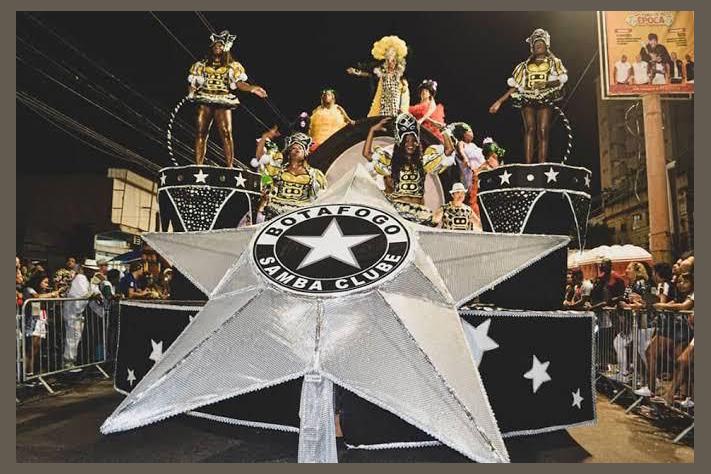 G.R.E.S Botafogo Samba Clube
G.R.E.S Botafogo Samba Clube
Musical Journey of G.R.E.S Botafogo Samba Clube: A Tapestry of Melodies, Challenges, and Legacy
G.R.E.S Botafogo Samba Clube, a renowned samba powerhouse from Rio de Janeiro, has etched its name into the annals of Brazilian music history with its captivating rhythms and socially conscious lyrics.
Origins and Inspirations
Founded in 1931, Botafogo Samba Clube emerged from the vibrant samba scene of Rio's Estácio neighborhood. Its early members, inspired by the legendary samba pioneers such as Ismael Silva and Alcebíades Barcelos, sought to create music that celebrated the spirit and culture of their community.
Challenges and Controversies
The club's path to success was not without its obstacles. During Brazil's military dictatorship (1964-1985), samba schools were often targeted for suppression due to their association with resistance movements. However, Botafogo Samba Clube remained defiant, using its music to voice its political dissent.
Discography and Signature Style
Botafogo Samba Clube has released numerous albums throughout its history, each showcasing its distinctive blend of traditional samba rhythms and contemporary elements. Their music is characterized by its infectious melodies, powerful vocals, and thought-provoking lyrics that often address social issues.
Member Roster and Notable Figures
Over the decades, Botafogo Samba Clube has been home to an impressive roster of musicians. Among its most notable members are:
* Beth Carvalho (1946-2019): The "Queen of Samba" who played a pivotal role in popularizing the genre and mentoring many young artists.
* Arlindo Cruz: A renowned samba composer and singer whose compositions have become classics.
* Marquinhos de Oswaldo Cruz: A virtuoso percussionist who has won numerous awards for his exceptional skills.
Legacy and Impact
G.R.E.S Botafogo Samba Clube has played a significant role in shaping the sound of samba music. Its songs have become anthems for generations of Brazilians, inspiring them to celebrate their heritage, embrace diversity, and fight for social justice. The club's legacy continues to live on, influencing countless artists and captivating audiences around the world.
G.R.E.S Botafogo Samba Clube, a renowned samba powerhouse from Rio de Janeiro, has etched its name into the annals of Brazilian music history with its captivating rhythms and socially conscious lyrics.
Origins and Inspirations
Founded in 1931, Botafogo Samba Clube emerged from the vibrant samba scene of Rio's Estácio neighborhood. Its early members, inspired by the legendary samba pioneers such as Ismael Silva and Alcebíades Barcelos, sought to create music that celebrated the spirit and culture of their community.
Challenges and Controversies
The club's path to success was not without its obstacles. During Brazil's military dictatorship (1964-1985), samba schools were often targeted for suppression due to their association with resistance movements. However, Botafogo Samba Clube remained defiant, using its music to voice its political dissent.
Discography and Signature Style
Botafogo Samba Clube has released numerous albums throughout its history, each showcasing its distinctive blend of traditional samba rhythms and contemporary elements. Their music is characterized by its infectious melodies, powerful vocals, and thought-provoking lyrics that often address social issues.
Member Roster and Notable Figures
Over the decades, Botafogo Samba Clube has been home to an impressive roster of musicians. Among its most notable members are:
* Beth Carvalho (1946-2019): The "Queen of Samba" who played a pivotal role in popularizing the genre and mentoring many young artists.
* Arlindo Cruz: A renowned samba composer and singer whose compositions have become classics.
* Marquinhos de Oswaldo Cruz: A virtuoso percussionist who has won numerous awards for his exceptional skills.
Legacy and Impact
G.R.E.S Botafogo Samba Clube has played a significant role in shaping the sound of samba music. Its songs have become anthems for generations of Brazilians, inspiring them to celebrate their heritage, embrace diversity, and fight for social justice. The club's legacy continues to live on, influencing countless artists and captivating audiences around the world.